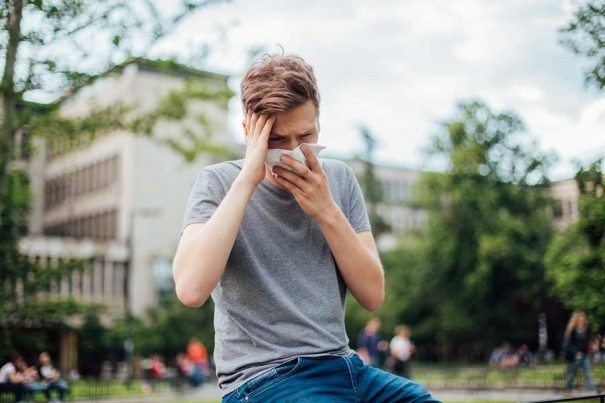How to Decide If Allergy Immunotherapy Is Right for You

Photo Courtesy of iStock
What is Allergy immunotherapy?
Allergy immunotherapy is a type of treatment for environmental allergies. This process stops or decreases your allergy symptoms by changing your immune response to allergens like pollens, animal dander, mold and dust mites, through a process called desensitization or tolerance.
The therapy is composed of allergen extracts based on which allergens you are allergic to, making each set of immunotherapies personalized. Over time, the amount of allergy extract is increased to promote your body’s natural tolerance, decreasing symptoms until a maximal dose is reached.
What are the different types of allergy immunotherapy?
There are 3 types of allergy immunotherapy: subcutaneous immunotherapy or allergy shots, sublingual or allergy drops and oral tablets. Subcutaneous and sublingual immunotherapy are mixed and made based on an individual’s allergy skin testing results. The amount of allergen extract is increased through a buildup phase, until a maintenance dose is reached and continued for a period of time.
Subcutaneous injections are administered in the allergy office, while sublingual immunotherapy can be administered at home. Oral immunotherapy tablets are available for select patients with isolated tree pollen, grass pollen or dust mite allergies. Of note, allergy immunotherapy is also available for peanut (sublingual or powder) and bee venom (subcutaneous) allergies.
Is allergy immunotherapy right for me?

Courtesy of Allergy & Asthma Specialists
Allergy immunotherapy may be indicated when traditional allergy medications like nasal sprays and antihistamine pills no longer control symptoms, or when the side effects of the medications become intolerable. Allergy medications only control the symptoms, while immunotherapy can provide a near complete cure of allergic disease. Those with uncontrolled seasonal or indoor allergies could gain long term benefits, such as preventing chronic sinus infection and nasal polyps. In addition, allergy immunotherapy can help control asthma triggered by environmental allergies, decreasing asthma exacerbations and the need for rescue inhalers. In children, there is evidence that allergy immunotherapy can prevent progression to allergic asthma.
This post was produced and paid for by Allergy & Asthma Specialists ℠

